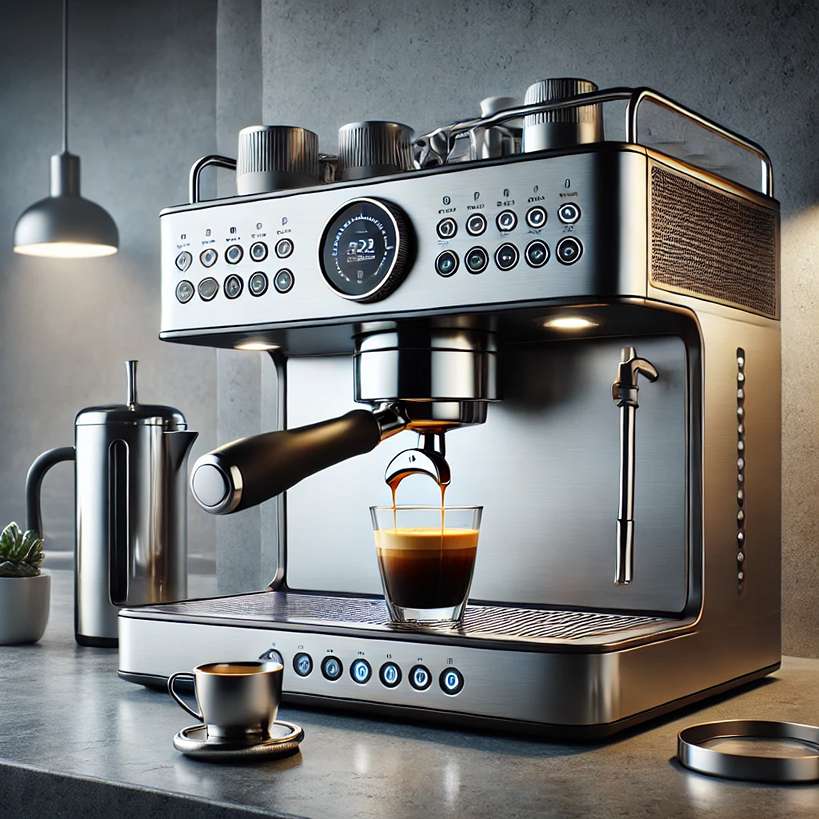Are you ready to elevate your coffee game with an espresso machine but don’t know where to start? Choosing the right espresso machine can feel overwhelming, especially with so many options available on the market. Whether you’re a coffee enthusiast or a beginner, this guide will help you understand what to look for when buying an espresso machine. Let’s dive into expert tips to help you find the perfect match for your needs.
Determine Your Skill Level: Beginner, Intermediate, or Expert?
Before diving into the world of espresso machines, assess your skill level and commitment to learning. Are you just starting, or do you have some experience? Here’s a quick guide:
- Beginners: Automatic or semi-automatic machines are ideal, as they offer ease of use without compromising the quality of the espresso.
- Intermediate: If you’re comfortable with the basics and want more control, consider semi-automatic machines with advanced features.
- Experts: For those with barista skills, manual or prosumer machines offer full control over the brewing process, allowing you to perfect every shot.
Types of Espresso Machines: Which One Suits You Best?
There are several types of espresso machines, each offering a unique coffee experience. Understanding the differences can help you make an informed decision.
- Manual Espresso Machines: For purists who want complete control over every step. Requires skill and patience.
- Semi-Automatic Machines: The most popular choice for home users, offering a good balance of control and automation.
- Automatic Machines: These machines automate the brewing process but still require some manual input, like grinding and tamping.
- Super-Automatic Machines: Fully automated, from grinding to brewing and milk frothing—perfect for those who want convenience.
- Capsule Machines: Easy to use, but limited to pre-packaged coffee pods.
Key Features to Consider When Choosing an Espresso Machine
When evaluating espresso machines, consider the following features that can enhance your brewing experience:
- Built-In Grinder: Freshly ground beans make a significant difference in flavor. A machine with a built-in grinder offers convenience and better control over grind size.
- Milk Frother: If you enjoy lattes or cappuccinos, look for a machine with a steam wand or automatic frother to create creamy milk foam.
- Pressure Pump: Opt for a machine with at least 9 bars of pressure to ensure proper extraction of espresso.
- Water Reservoir Size: A larger water reservoir is ideal if you plan to make multiple cups daily without constant refilling.
- Temperature Control: Consistent water temperature is crucial for optimal espresso extraction. Look for machines with PID temperature control for precise adjustments.

Budget Considerations: How Much Should You Spend?
Espresso machines range from budget-friendly to high-end luxury models. Your budget will significantly influence your choice:
- Budget ($100 – $300): Basic machines that get the job done but with limited features.
- Mid-Range ($300 – $1,000): Offers a good balance of quality, features, and durability. Ideal for most home users.
- High-End ($1,000+): Professional-grade machines with advanced controls, perfect for coffee aficionados who want the best.
Brand Reputation and Customer Reviews: Do They Matter?
When investing in an espresso machine, brand reputation and customer reviews can provide valuable insights. Reputable brands like Breville, De’Longhi, and Gaggia are known for their quality and reliability. Check online reviews to learn about real user experiences, focusing on aspects like ease of use, maintenance, and durability.
Size and Design: Will It Fit in Your Kitchen?
Espresso machines come in various sizes and designs. Consider the following factors:
- Counter Space: Measure your kitchen counter space to ensure the machine fits comfortably.
- Design Aesthetics: Choose a machine that complements your kitchen’s style, whether it’s modern, retro, or classic.
- Portability: If you plan to move the machine often, look for lighter models.
Ease of Maintenance: How Easy Is It to Clean?
Regular maintenance is crucial for keeping your espresso machine in top condition. Machines with removable parts, easy-access water tanks, and built-in cleaning programs are more user-friendly. Descaling and cleaning the machine regularly will not only prolong its lifespan but also maintain the quality of your coffee.
Additional Accessories: What Else Do You Need?
Investing in a good espresso machine is just the beginning. Here are some accessories to enhance your coffee-making experience:
- Tamper: Essential for evenly pressing coffee grounds in the portafilter.
- Milk Jug: For frothing milk manually.
- Knock Box: A convenient tool for disposing of used coffee grounds.
- Water Filter: Helps improve water quality, which can significantly affect the taste of your espresso.
Warranty and Customer Support: Are You Covered?
A reliable warranty and excellent customer support are crucial, especially when investing in a high-end machine. Check the manufacturer’s warranty policy, and ensure they offer accessible support channels in case you encounter any issues.
Test Before You Buy: Try It Out in a Store
If possible, visit a store and test different espresso machines before making a purchase. Many specialty coffee shops and retailers offer demonstrations, allowing you to experience the machine’s functionality firsthand. Testing helps you understand the machine’s ease of use, build quality, and performance.


